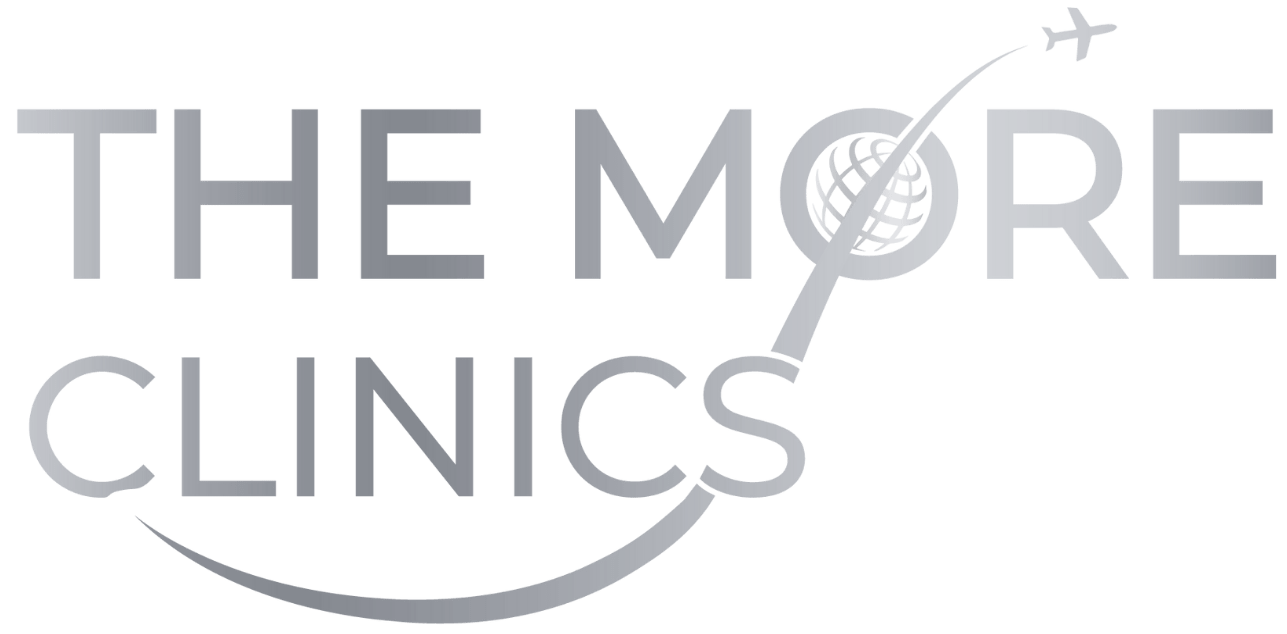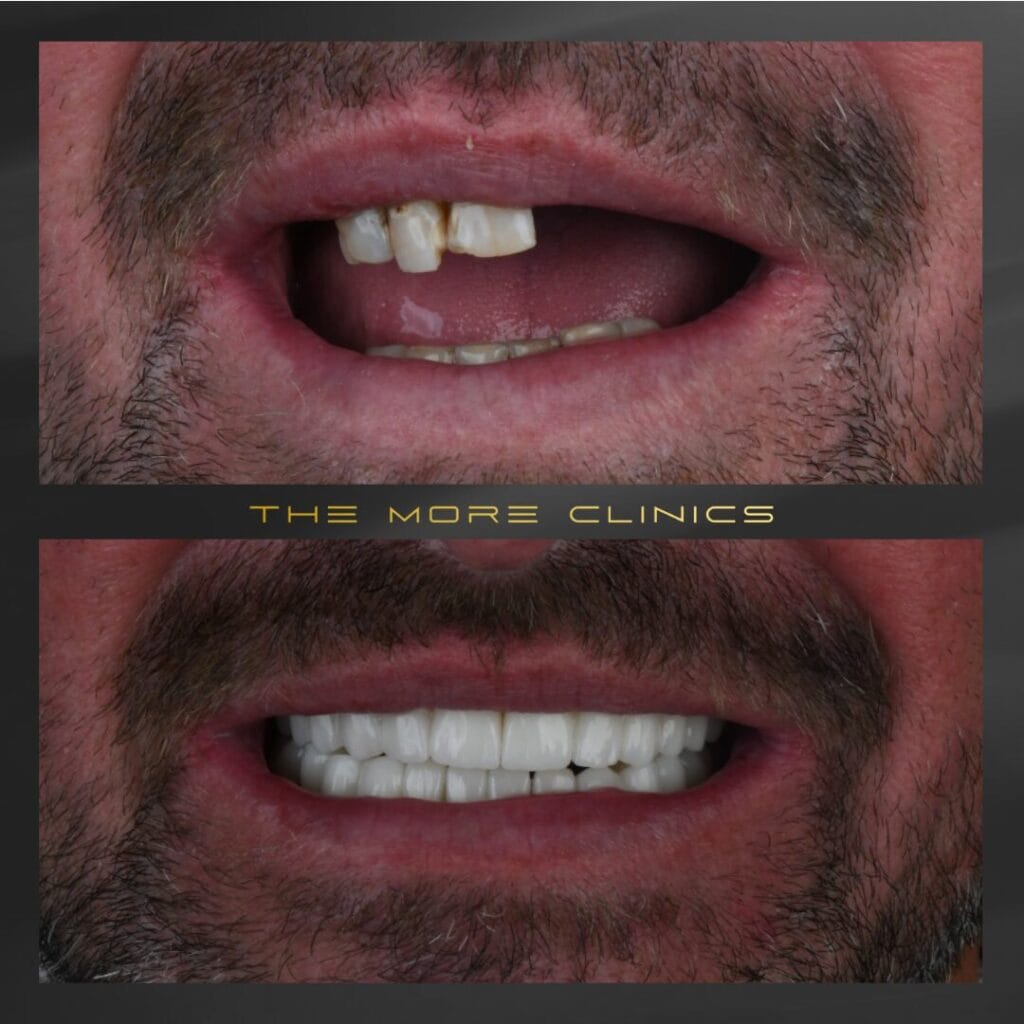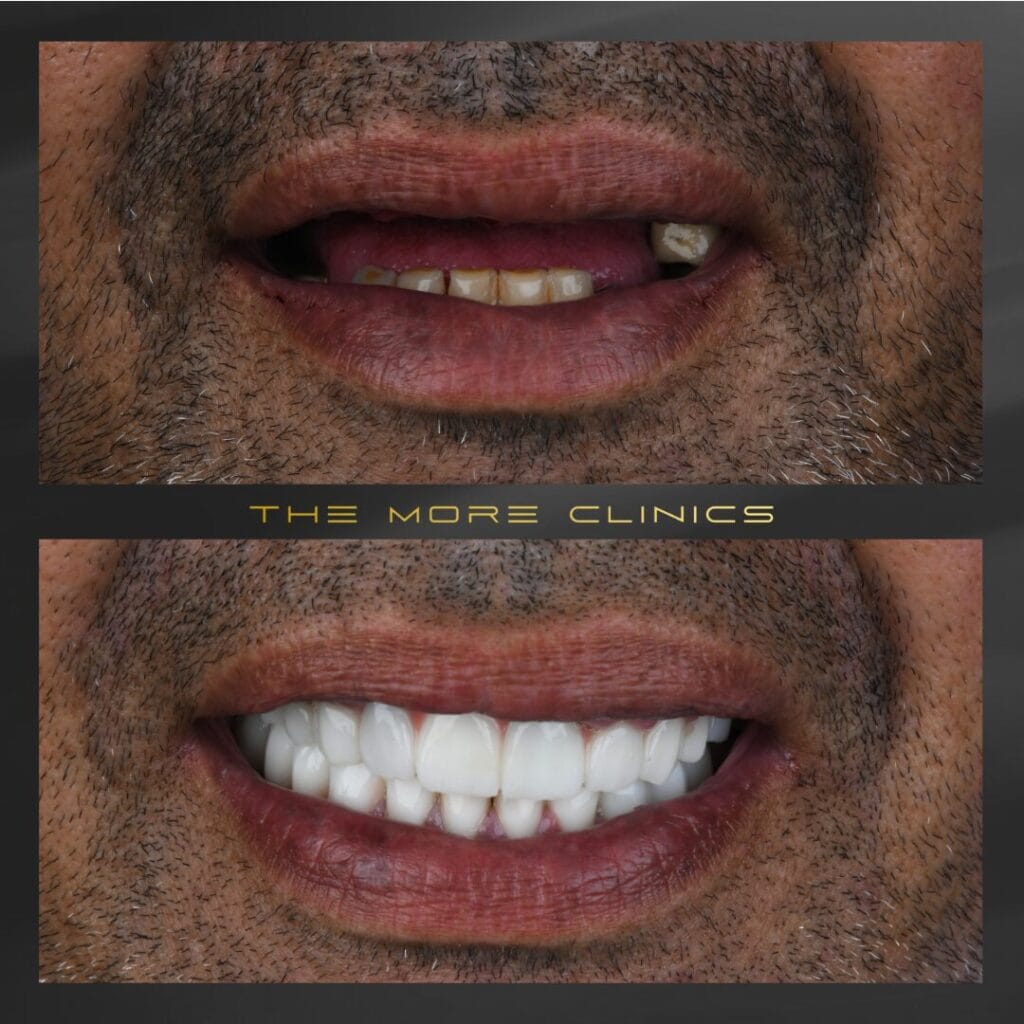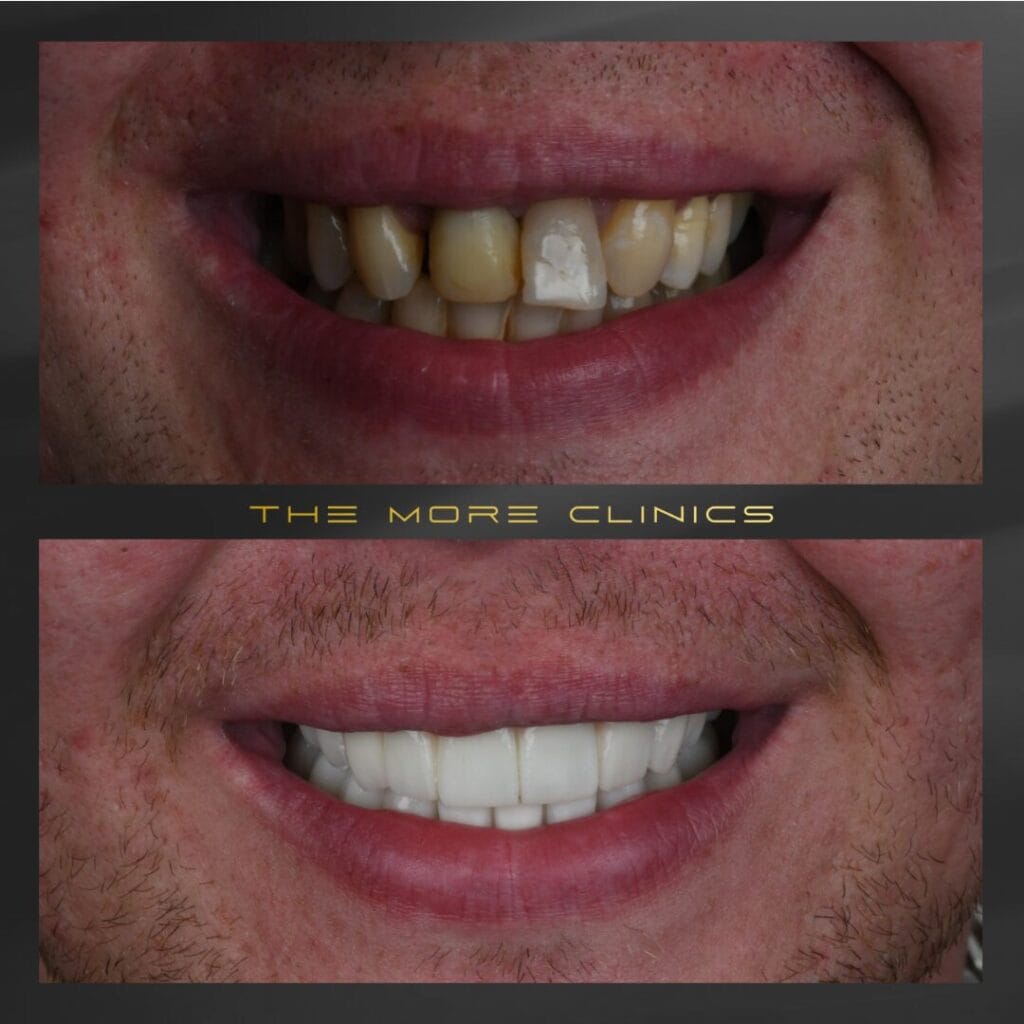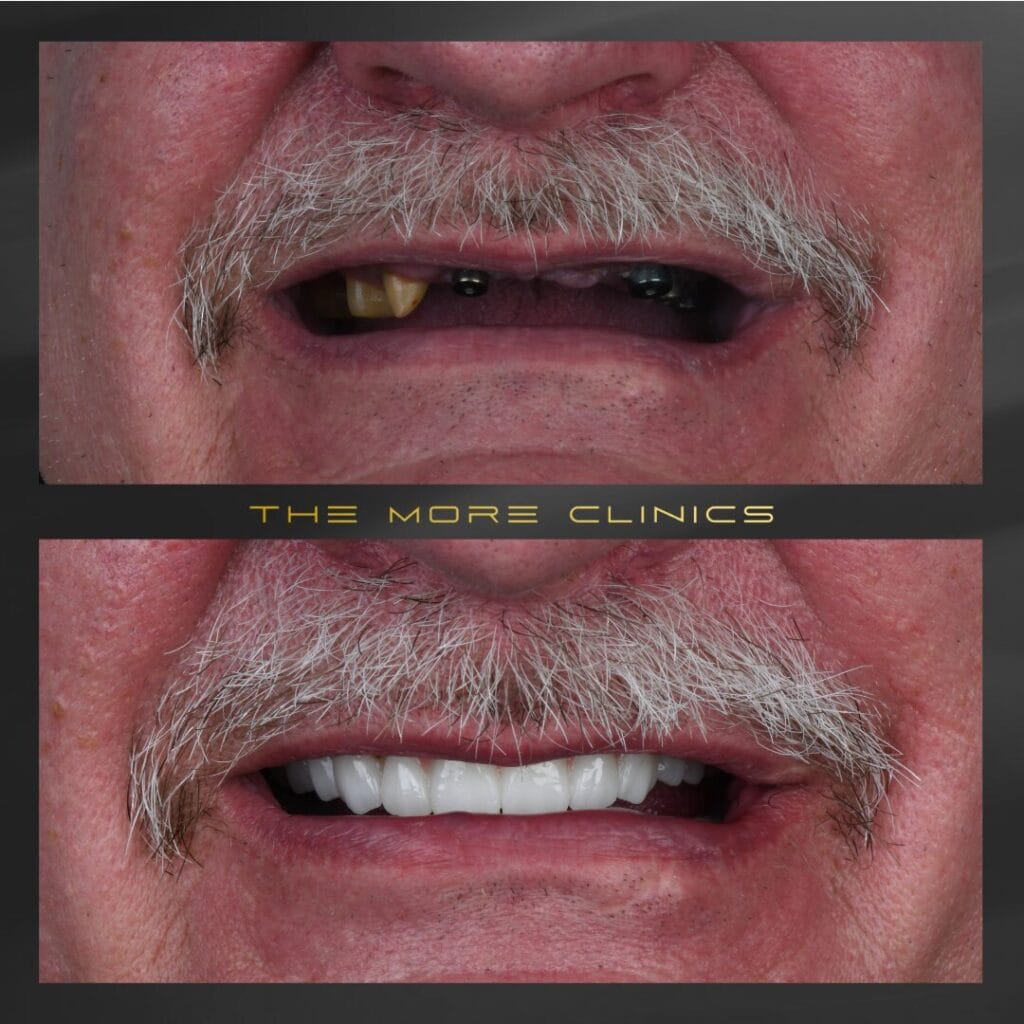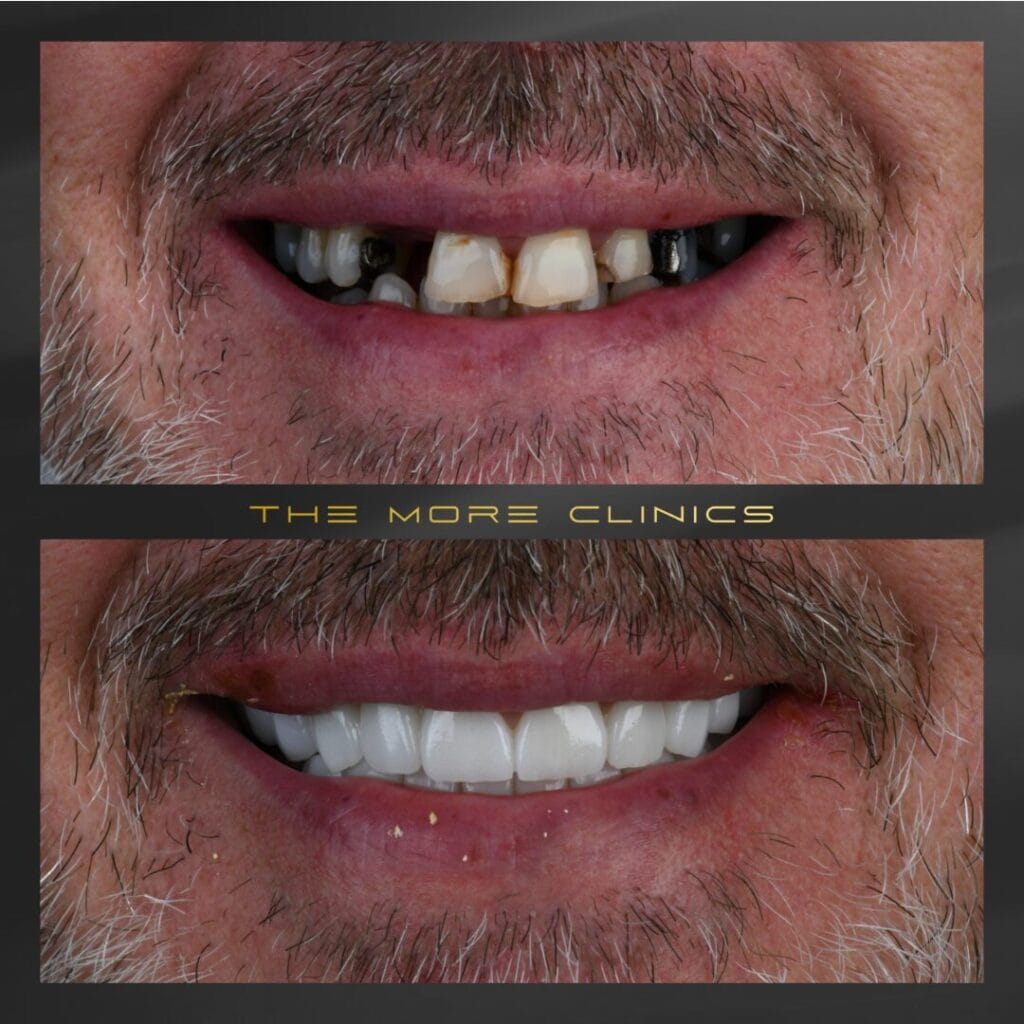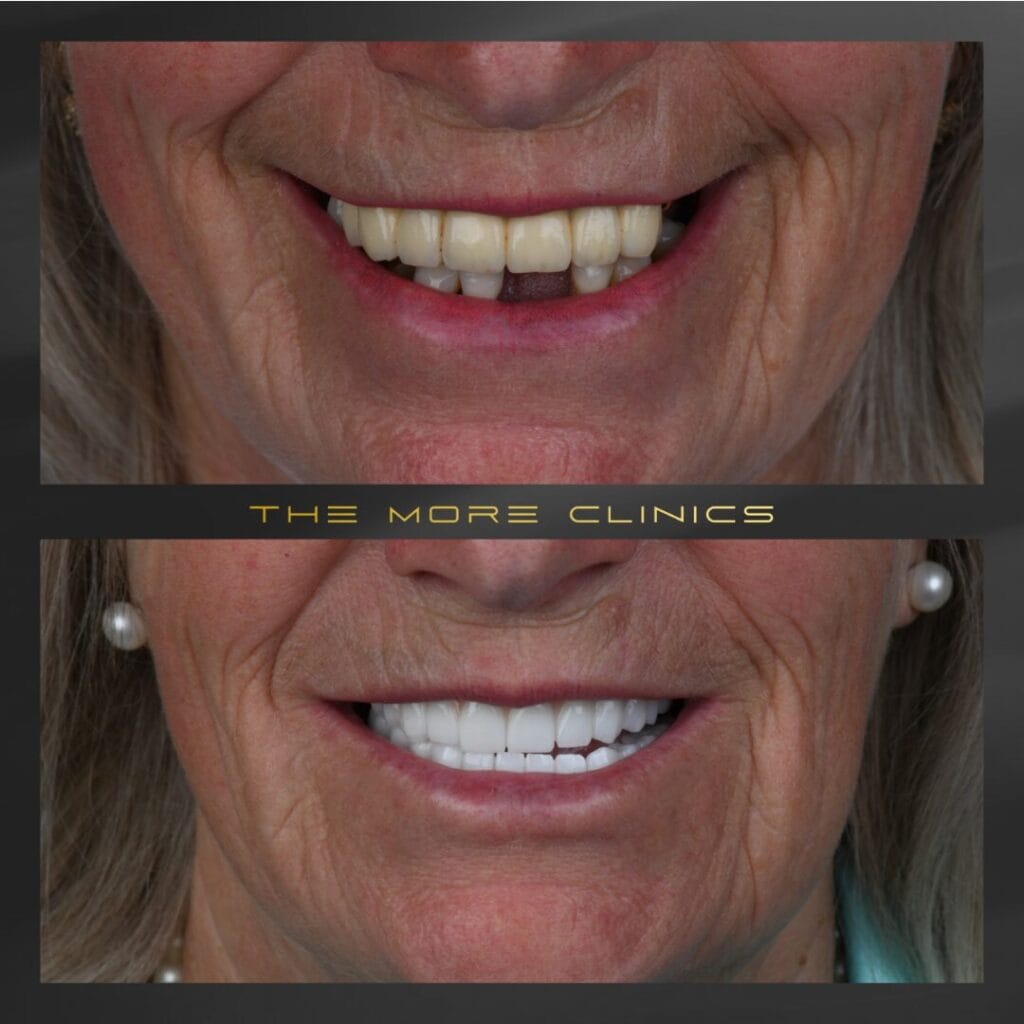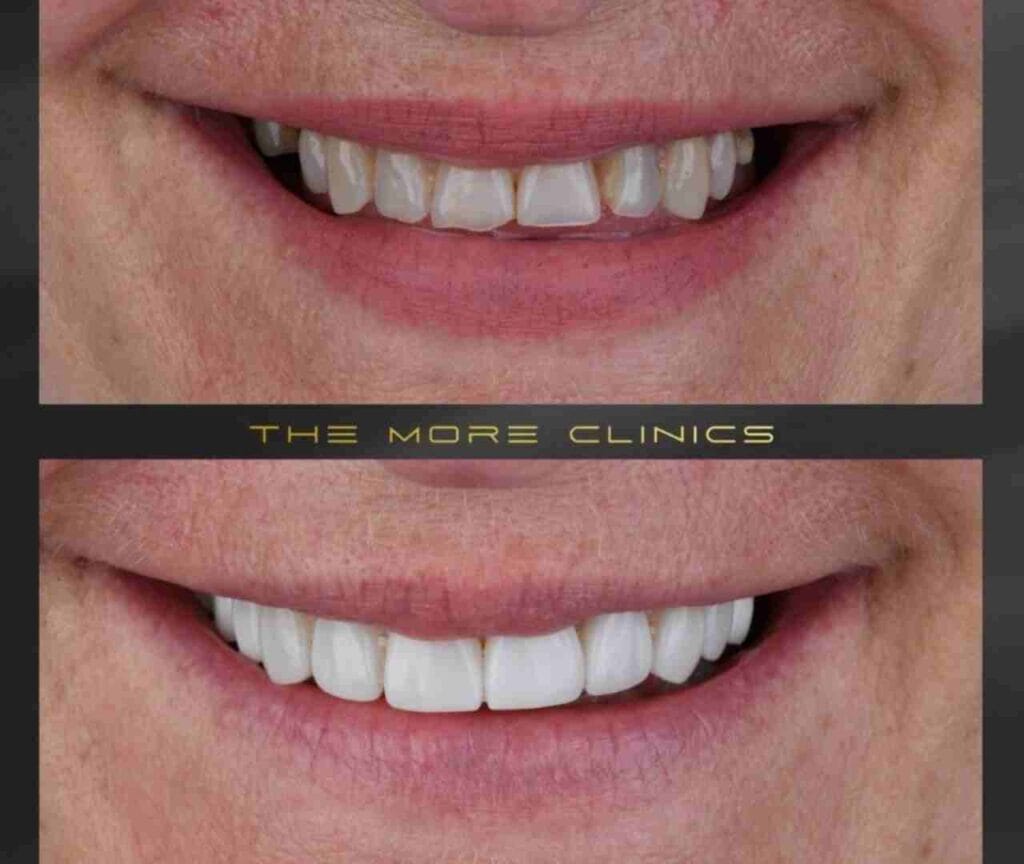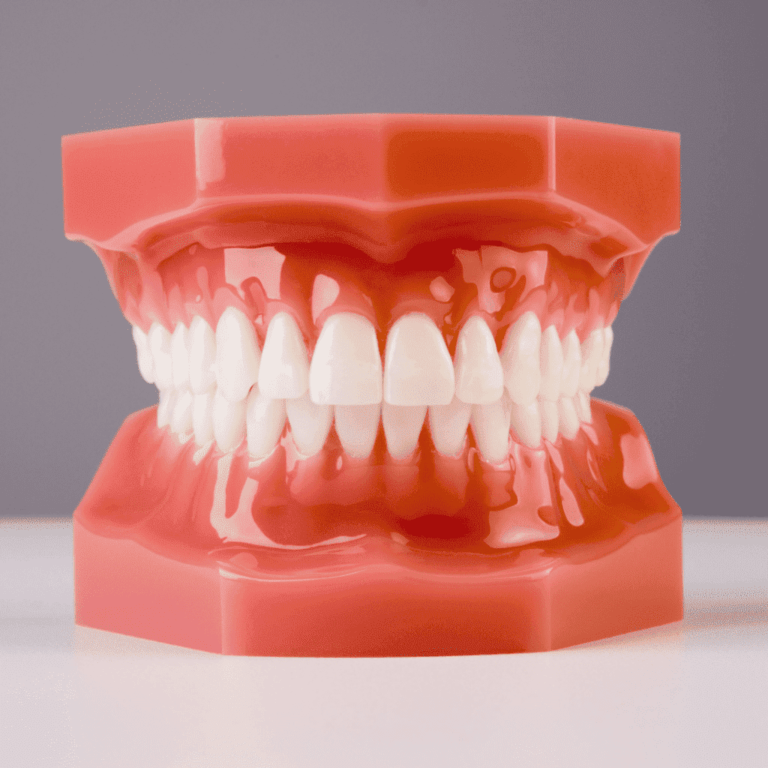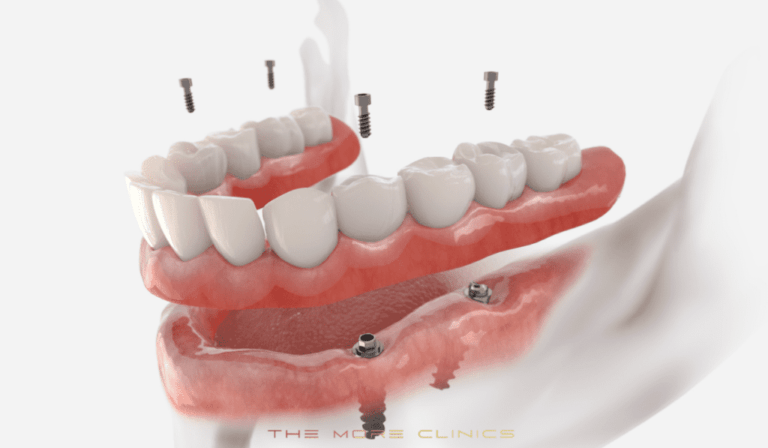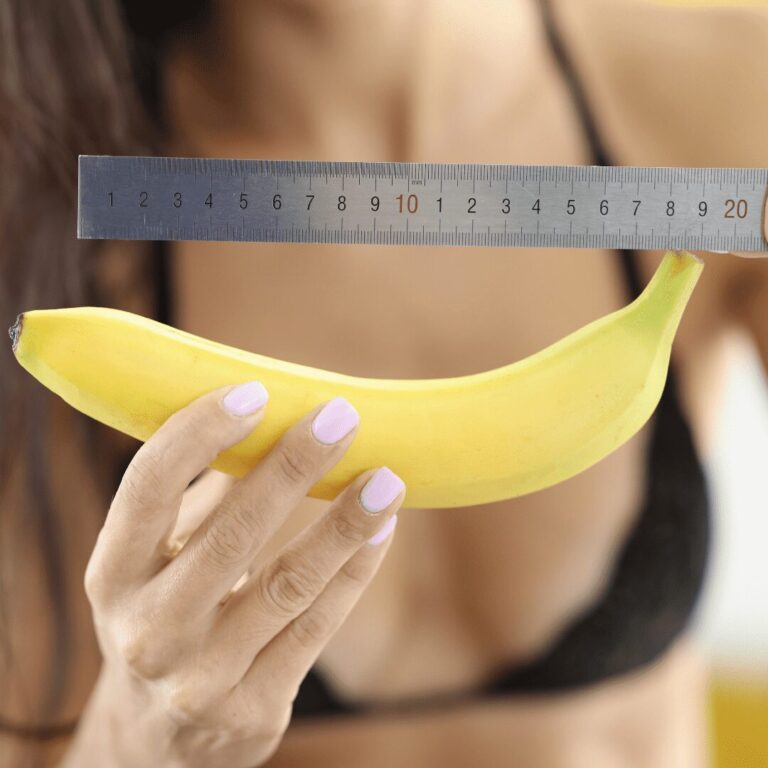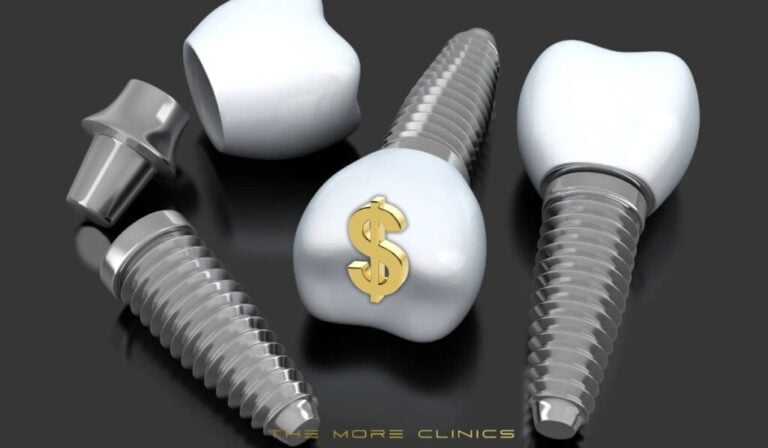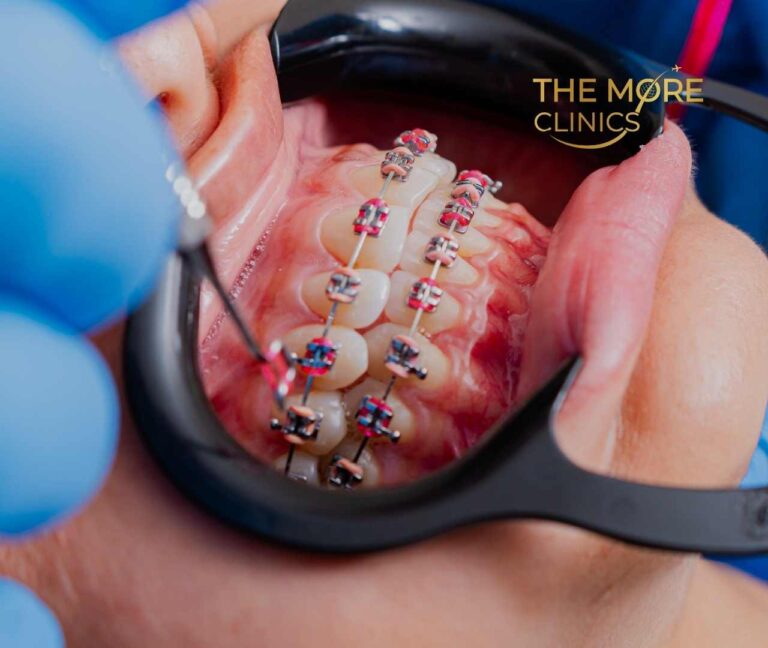Types of Dental Crowns and Cost
When it comes to restoring damaged or decayed teeth, dental crowns are essential for preserving both oral health and aesthetics. These versatile restorations come in various materials, tailored to meet different needs and preferences. At The More Clinics, we provide detailed insights into the types of teeth caps available, what is best for front tooth crown. A complete guide with the tooth crowns before and after pictures to help you make an informed choice. Welcome to our types of dental crowns and cost guide!
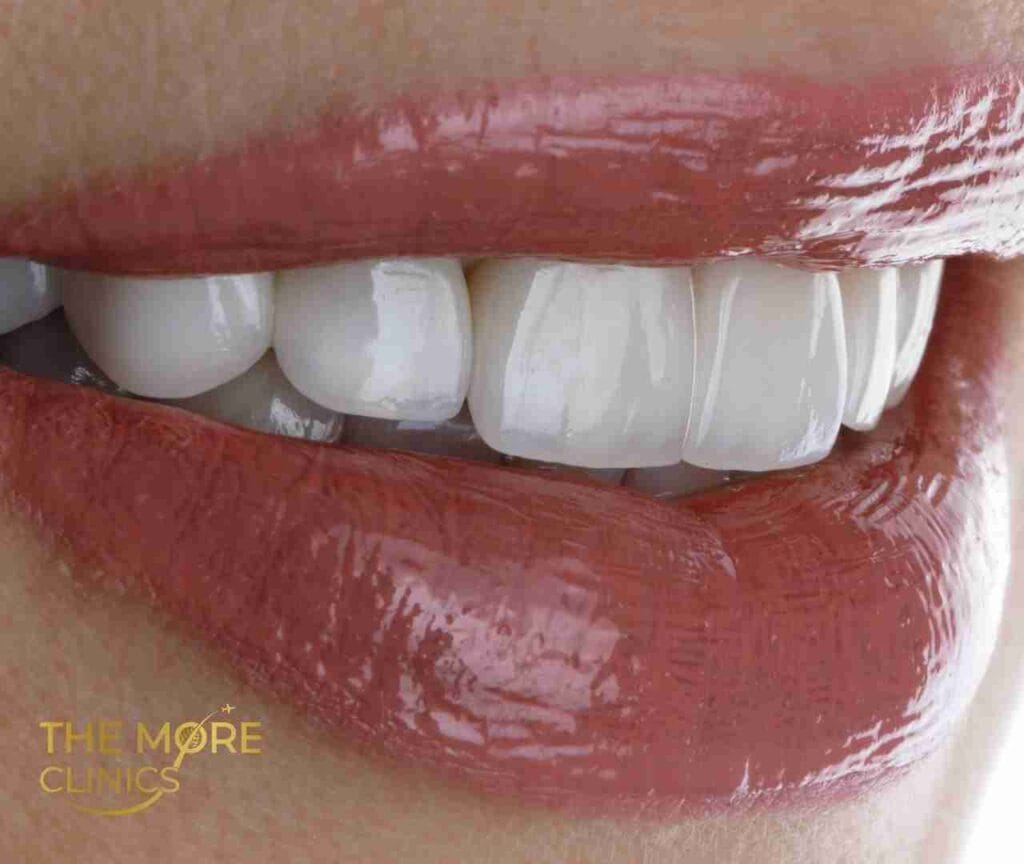
Dental crowns, also known as dental caps (or tooth crown), are custom-made coverings that encase a damaged tooth or dental implant. All types of dental crowns restorations serve as protective shells, restoring the shape, strength, and function of a tooth while enhancing its appearance. They are commonly used to treat teeth with extensive decay, cracks, fractures, or to cover misshapen or discolored teeth. For detailed information about tooth crown procedure please read our post.
Types of Dental Crowns
Porcelain Crowns
Porcelain crowns are prized for their natural appearance, mimicking the color and texture of your natural teeth. They are an excellent choice for front teeth restoration due to their aesthetics and ability to blend seamlessly with adjacent teeth.
Pros:
- Exceptional Aesthetics: Porcelain crowns closely resemble natural teeth, providing a seamless blend.
- Biocompatible: These crowns are well-tolerated by gum tissue, minimizing the risk of allergic reactions.
- Suitable for Front Teeth: Porcelain crowns are an excellent choice for front teeth restoration.
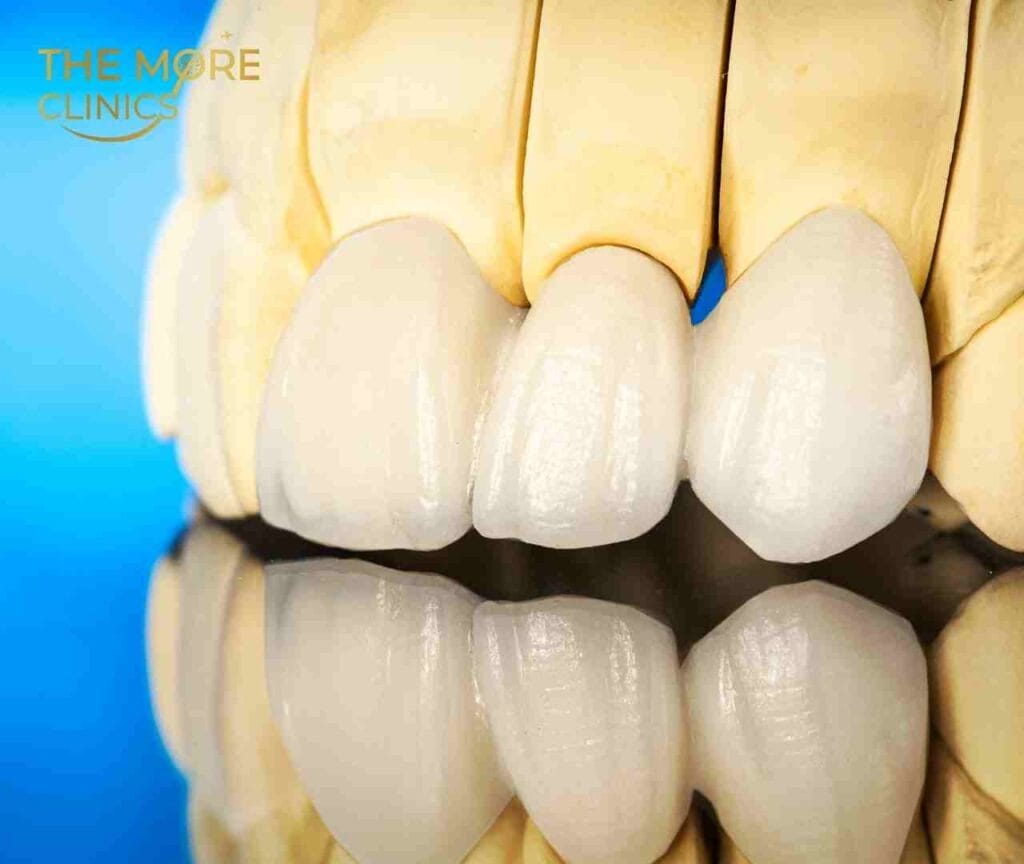
Cons:
- Susceptible to Fractures: Porcelain crowns are relatively more prone to chipping or cracking.
- Limited Durability: They may not be as durable as metal-based crowns, especially for back teeth.
E-Max Crowns
E-Max crowns are crafted from a single block of lithium disilicate ceramic, offering excellent aesthetics and strength. They are often used for veneers, inlays, onlays, and full crowns.
Pros:
- Aesthetically Pleasing: E-Max crowns offer lifelike aesthetics with exceptional translucency and generally preferred in front tooth crown restorations.
- Durability: They are known for their strength and longevity.
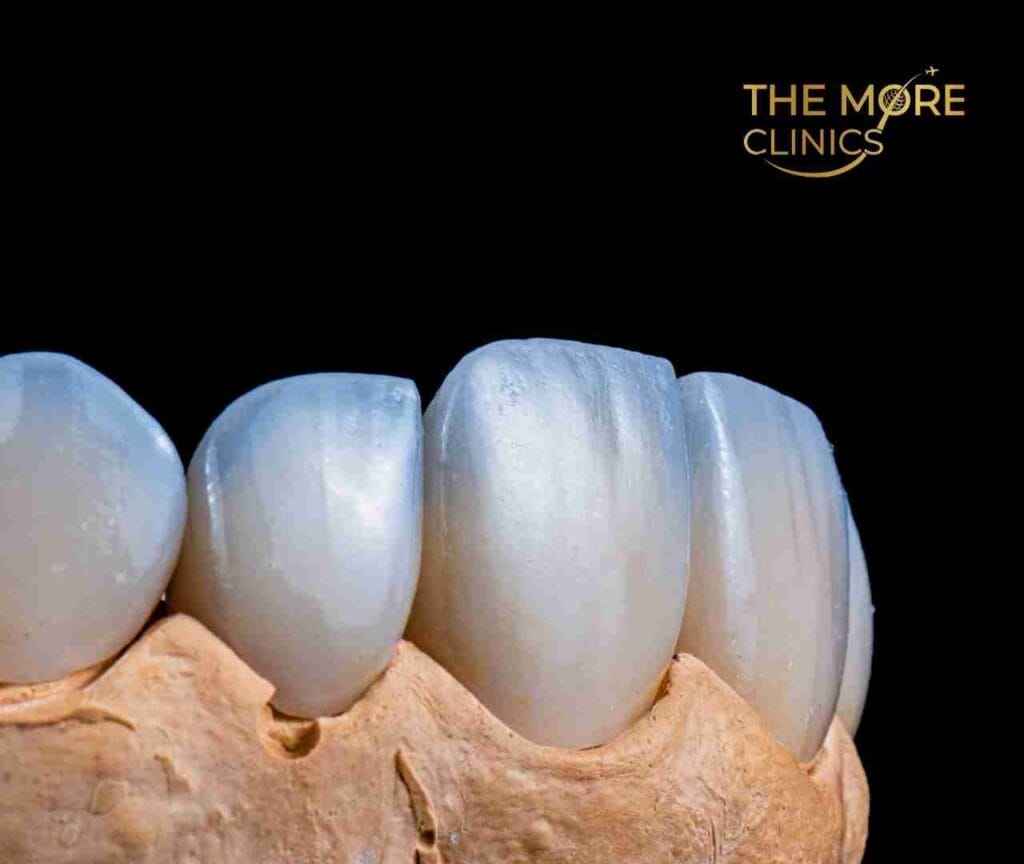
Cons:
- Limited to Certain Areas: E-Max is a more suitable dental crown front tooth and smaller restorations in smile line.
- Cost: They may be relatively more expensive compared to other options.
Zirconia Crowns
Zirconia crowns are known for their exceptional strength and durability. They are resistant to chipping and can withstand substantial biting forces, making them suitable for posterior teeth.
Pros:
- Outstanding Durability: Zirconia crowns are exceptionally strong and resistant to chipping.
- Versatility: They can be used for both front and back teeth restorations.
- Aesthetically Pleasing: They offer a natural appearance with a translucent quality.
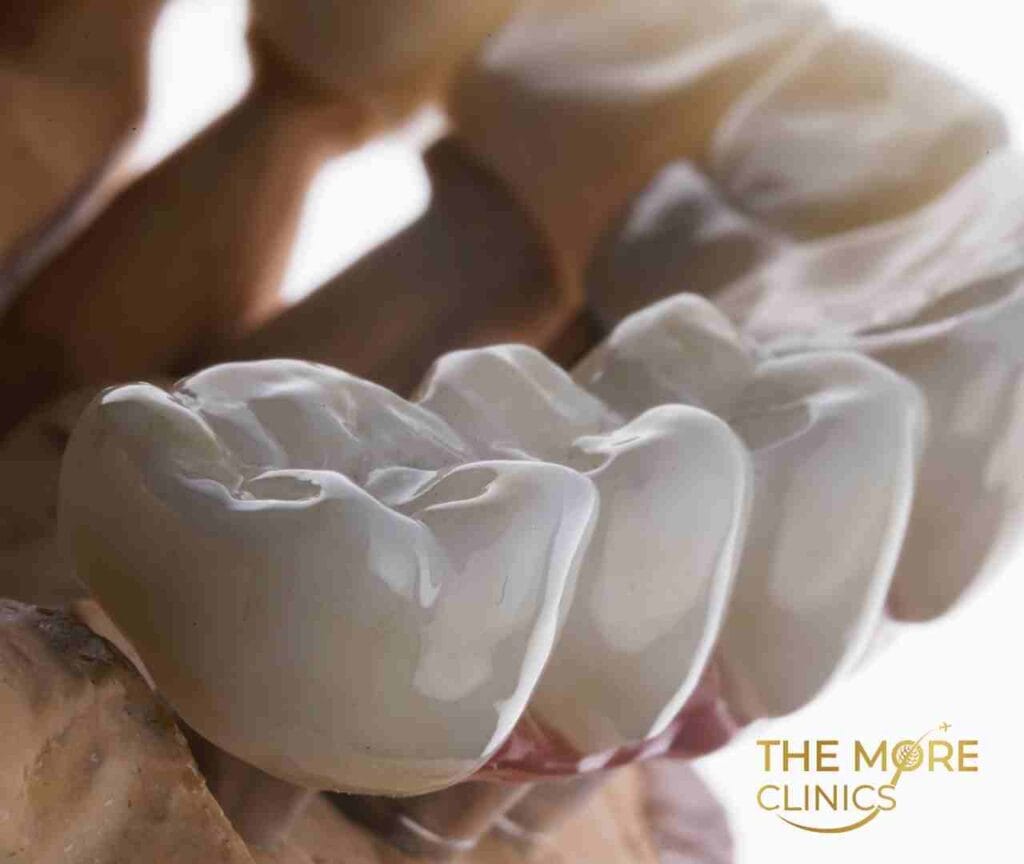
Cons:
- Thickness: Due to their strength, zirconia crowns may require more tooth reduction.
- Wear on Opposing Teeth: Zirconia crowns can cause more wear on opposing natural teeth.
All-Ceramic Crowns
All-ceramic crowns are known for their exceptional aesthetics and natural appearance, making them a great choice for patients seeking seamless restorations.
Pros:
- Superior aesthetics for a natural look.
- Metal-free, ideal for patients with allergies.
- Requires minimal tooth reduction.
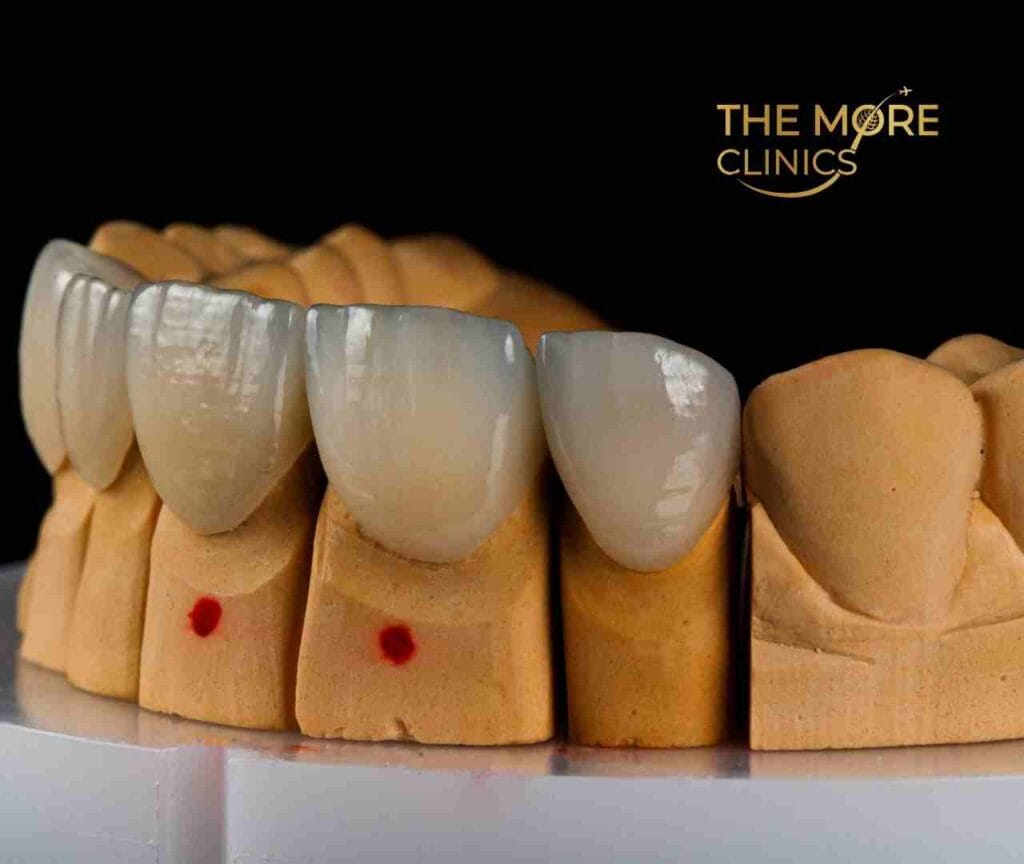
Cons:
- More prone to fractures compared to other materials.
- Not recommended for molars under heavy chewing forces.
Porcelain-Fused-to-Metal (PFM) Crowns
PFM crowns combine the strength of metal with the aesthetics of porcelain. They offer a balance between durability and natural appearance, making them suitable for both front and back teeth.
Pros:
- Balance of Strength and Aesthetics: PFM crowns combine the durability of metal with the natural appearance of porcelain.
- Versatility: They can be used for both front and back teeth restorations.
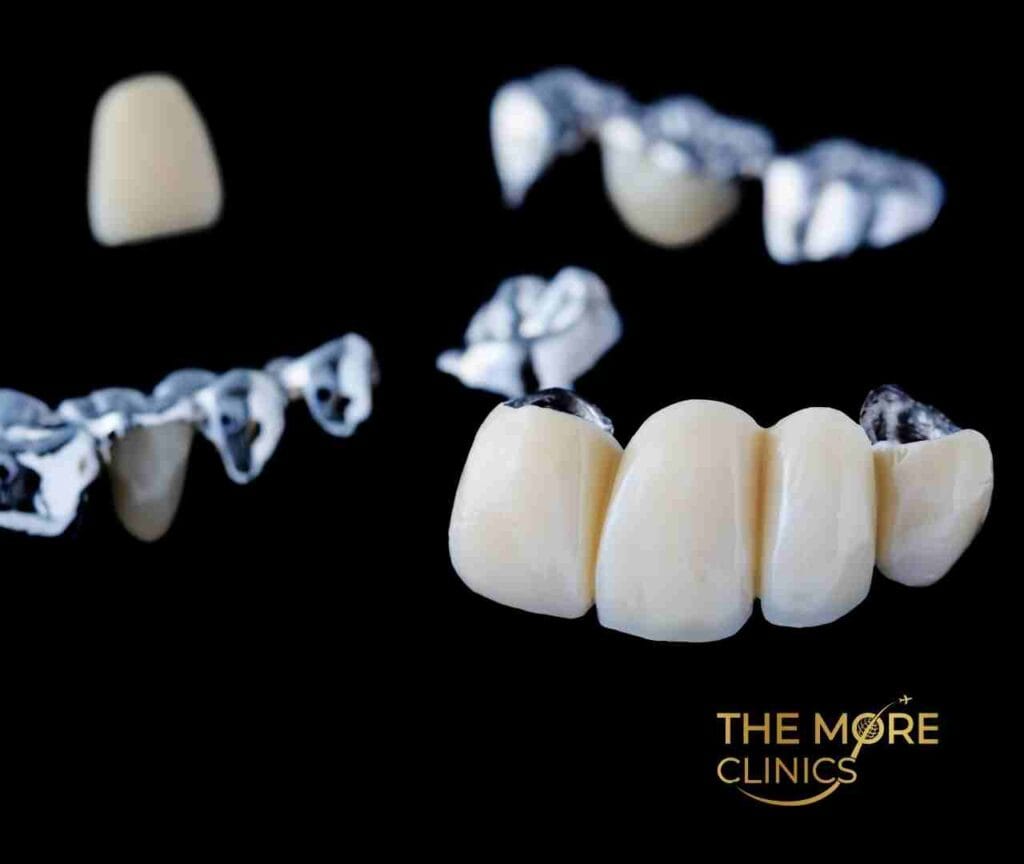
Cons:
- Aesthetic Limitations: The metal core of PFM crowns may lead to a visible gray line at the gumline over time.
- Potential Wear on Opposing Teeth: The porcelain exterior can cause gradual wear on opposing natural teeth.
Gold Crowns
Gold crowns, made from gold alloy, have been used in dentistry for many years. While they may not be as aesthetically pleasing as other options, they offer unique advantages that make them a popular choice for certain situations.
Pros:
- Exceptional Durability: Gold crowns are highly resistant to wear and fractures, making them an excellent choice for molars and teeth that undergo heavy chewing forces.
- Biocompatibility: Gold has been proven to be biocompatible with oral tissues, reducing the risk of allergic reactions or sensitivity.
- Minimal Tooth Removal: They require minimal removal of tooth structure, preserving more of the natural tooth.
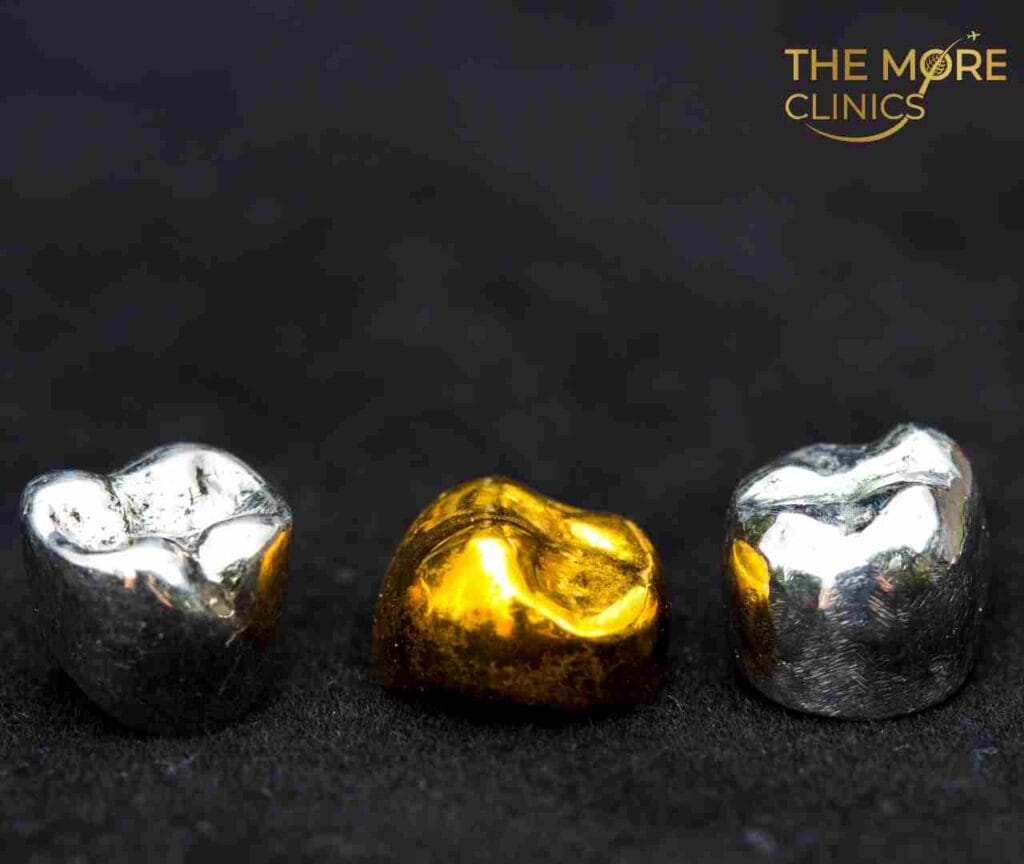
Cons:
- Aesthetics: Gold crowns are highly visible and may not be suitable for visible teeth where aesthetics are a concern.
- Cost: Gold crowns tend to be more expensive compared to other types of crowns.
Metal Crowns
Metal crowns, often made from alloys like gold or silver, are known for their exceptional durability. They are resistant to wear and tear and are an ideal choice for molars that endure significant chewing forces.
Pros:
- Durability: Metal crowns, often made from alloys like gold or silver, are highly resilient.
- Minimal Tooth Removal: These crowns require less tooth reduction compared to other types.
- Longevity: Metal crowns can last for several decades with proper care.
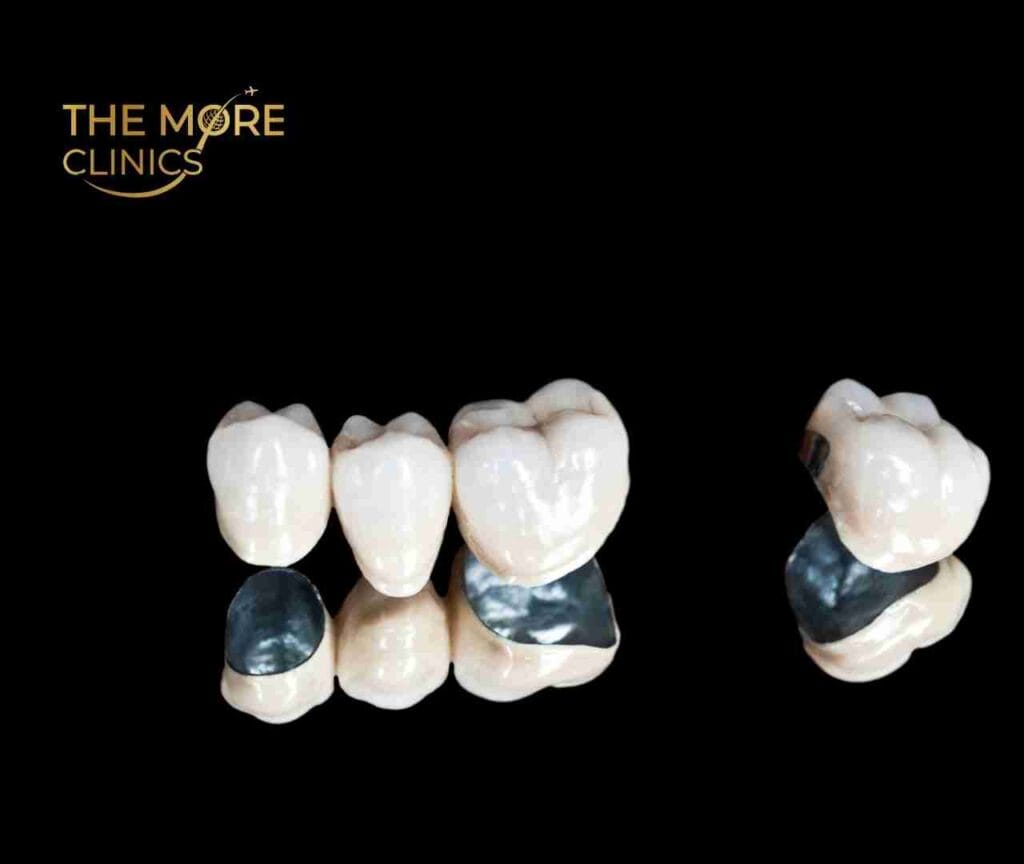
Cons:
- Aesthetic Concerns: Metal crowns are not as aesthetically pleasing, particularly for visible teeth.
- Allergy Risk: Some individuals may be allergic to certain metals used in crowns.
Temporary Crowns
Temporary crowns are short-term solutions used to protect a tooth while waiting for a permanent crown to be made. They are typically made of acrylic or composite material.
Pros:
- Immediate Protection: Shields the tooth until the permanent crown is ready.
- Cost-Effective: Less expensive as they are meant to be temporary.
Cons:
- Fragile: Not as durable and can break easily.
- Aesthetic Limitations: May not perfectly match the natural tooth color.
For more information about temporary crown please read our Guide.
Tooth Crown Before and After Photos
Types of Dental Crowns and Cost Comparison
When it comes to dental crowns, there are several options available, each with its own unique characteristics and price range. Here are some common types of dental crowns and their corresponding costs:
| Country | E-Max Crowns (per tooth) | Zirconium Crowns (per tooth) | All-Ceramic Crowns (per tooth) | Porcelain Fused Crowns (per tooth) |
|---|
| United Kingdom (UK) | £600 – £1,200 | £500 – £1,000 | £500 – £1,200 | £400 – £900 |
| United States (USA) | $1,000 – $2,500 | $800 – $2,000 | $1,000 – $2,500 | $600 – $1,500 |
| Germany | €700 – €1,500 | €600 – €1,200 | €600 – €1,500 | €500 – €1,000 |
| Canada | CAD 1,200 – CAD 2,500 | CAD 1,000 – CAD 2,000 | CAD 1,000 – CAD 2,500 | CAD 800 – CAD 1,800 |
| Tooth Crown Cost Turkey | £190 – £280 | £120 – £190 | £250 – £350 | £100 – £150 |
Please note that the costs mentioned above are approximate and can vary depending on factors such as the country and dental provider.
Factors Effecting Tooth Crown Cost
Before deciding on a types of dental crowns and cost, several factors should be taken into account:
- Location of the Tooth: The crown’s placement, whether on front or back teeth, affects its visibility and chewing function.
Dental crowns for front teeth prioritize aesthetics over strength, as they are more visible and less subjected to heavy chewing forces. In contrast, back molars require crowns that emphasize durability and strength to withstand greater pressure such as grinding and biting.
- Allergies: If you have a known allergy to certain materials, make sure to discuss this with your dentist before choosing a dental crown. For those allergic to metals, all-ceramic or zirconia crowns are ideal options.
- Budget: The type of crown you choose will significantly impact the cost of your dental restoration. Talk to your dentist about payment plans or financing options if needed.
- Personal Preferences: Ultimately, the choice of which dental crown material is best for you also depends on personal preferences such as appearance, maintenance requirements, and potential side effects.
Get your All-Inclusive Tooth Crown Cost Turkey Package Deal!
Last Words from the More Clinics Turkey
Selecting the right type of dental crown depends on various factors, including the tooth’s location, aesthetics, durability, and budget. Consulting with a skilled dentist at The More Clinics will help you determine the most suitable option for your specific needs.
Benefit from Turkey’s competitive prices and experience top-notch dental care with the best dental team at The More Clinics. Our skilled dentists are committed to providing exceptional quality and service, ensuring you receive the most cost-effective and satisfying dental crown treatment available. Don’t compromise on your oral health or your budget. Contact us now to book your free consultation for affordable excellence in dental care.
GET A FREE CONSULTATION!
Let’s Start Planning Your Treatment %100 Guarantee Results.
WHY PEOPLE CHOSE US?
“Successful clinical outcomes require a combination of medical expertise, state of the art technology and high quality care.”
The More Clinics, providing Global Patients with world class dental services from over 90 countries, in 7 languages in coordination with the support teams and offices in the USA, the UK, CANADA and ISRAEL.
- More than 10.000 Global Patient Success!
- State-of-art Technologies and High Quality Materials.
- Globally Trusted Brands!
- On-Site Laboratory
- More than 20 years of Experience.
- Team of qualified and accredited dentists in Turkey.
- Patient Rights Oriented!
- Only Reasonable and Affordable Prices
- Providing on-site and off-site assistance 24/7.

FAQ’s
Q: Are dental crowns painful to get?
A: The procedure is usually painless due to local anesthesia. Any discomfort afterward is manageable.
Q: How long do dental crowns last?
A: With proper care, dental crowns can last anywhere from 10 to 30 years.
Q: Can I eat normally with dental crowns?
A: Yes, you can enjoy most foods, but avoid overly hard or sticky items.
Q: Is the procedure time-consuming?
A: Crown placement usually requires two visits, but advancements in technology have streamlined the process.
Q: Are dental crowns noticeable?
A: Modern crown materials ensure a natural appearance, making them hardly noticeable.
Q: Are there any risks or complications?
A: Complications are rare, but include allergic reactions or sensitivity.
Q: What is the best type of front tooth crown?
A: Porcelain or ceramic crowns are often the best choice for front tooth crown because they match the natural color and translucency of current front teeth.
Q: What is the front tooth crown cost Uk and Turkey?
A: The front tooth crown cost in the UK can vary depending on several factors, including the type of crown chosen and the specific dental practice. Generally, porcelain crowns tend to be more expensive than metal-based options. Tooth crown cost in Uk ranges from approximately £700 to £2000 per tooth while in Turkey, it can range from £150 to £250 per tooth.
Q: What is the best type of tooth crown for back teeth?
A: Unlike front tooth crown, back teeth needs more strength than esthetic. Metal or porcelain-fused-to-metal crowns are ideal for back teeth due to their durability and ability to handle strong chewing forces.
Q: Are crowns suitable for people who grind their teeth?
A: Yes, but durable materials like zirconia are recommended for individuals who grind their teeth to prevent wear and damage.
Q: Can dental crowns affect my bite?
A: Properly fitted crowns should not affect your bite. However, if you experience discomfort or misalignment, adjustments may be needed.
Q: If I have an overbite, which type of dental crown will be best for me?
A: If you have an overbite, it’s crucial to consider how a dental crown might affect your bite alignment. We recommend consulting your dentist to determine the most suitable crown for your specific needs. At The More Clinics, we often suggest crowns made from durable materials such as zirconia, which are designed to withstand the pressure of an overbite while maintaining proper alignment. For optimal results, monolithic zirconia crowns are an excellent choice, offering both strength and longevity.
Q: What if I have an underbite? Can i have a crown?
A: If you have an underbite, it’s important to consult with your dentist to evaluate the suitability of a dental crown for your specific situation. While dental crowns are primarily used to restore damaged teeth or improve their appearance, they may not be the ideal solution for correcting an underbite. In cases of more severe jaw misalignment, your dentist may recommend alternative treatments such as orthodontic procedures or jaw surgery to address the underbite effectively. It’s essential to seek professional advice to determine the best course of action for your individual needs.
Q: How is the relation between types of dental crowns and cost?
A: Types of dental crowns and cost relation totally depends on the material used to produce crown. Porcelain tends to be more expensive than metal, gold crowns are more expensive since the cost of gold is higher.
Q: Why tooth crown cost varies in countries?
A: Tooth crown cost can vary depending on the country’s economic factors, materials used, and individual dentist fees. Countries like Turkey is popular for dental tourism can offer competitive prices for high-quality dental care compared to many other countries such as Germany, Uk and USA.
SOURCES:
Journal of American Dental Association (ADA): “Wearing a Crown”
National Library of Medicine, Pubmed: “The clinical success of zirconia-based crowns: a systematic review”
Scandinavian Division of the International Association for Dental Research: “Retrospective clinical study of tooth‐supported single crowns: A multifactor analysis”
National Library of Medicine, Pubmed: “Clinical evaluation of monolithic zirconia crowns for posterior teeth restorations”
Journal of Research in Medical and Dental Science: “Zirconium Restorations-A review”
Cleveland Clinic: “Dental Crowns”
International Journal of Dentistry: “Retention and Clinical Performance of Zirconia Crowns: A Comprehensive Review”
Zirconium Restorations-A review
HOW THE MORE CLINICS KEEP THE CONTENT UP TO DATE:
Our dedicated medical and editorial teams work tirelessly to stay informed about the ever-evolving world of health news. By rigorously tracking the latest research, clinical guidelines, and significant developments across various medical fields, they ensure that our content remains accurate, relevant, and up-to-date. This includes reviewing peer-reviewed studies, consulting with healthcare professionals, and monitoring advancements in medical technology. Their meticulous efforts and attention to detail allow us to provide you with trustworthy, reliable information that you can depend on to make informed decisions about your health and well-being.
However, we still insist on getting a healthcare professional’s opinion before you make any decision about your health. Consulting with a qualified expert ensures that the choices you make are informed, safe, and tailored to your individual needs.
Last Uptaded at: January 3, 2025
Medically Reviewed by: DR ONUR ADEMHAN, ORAL AND MAXILLOFACIAL SURGEON
